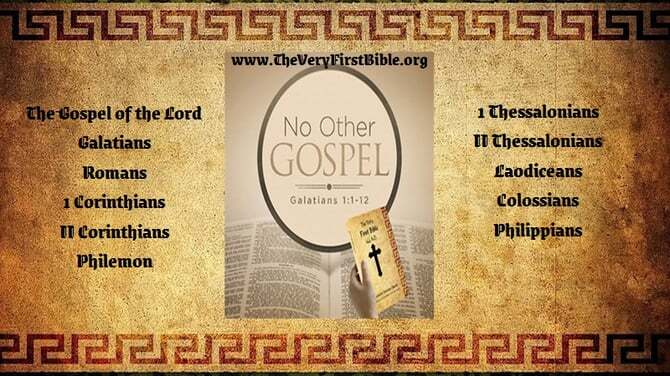If you're not reading the same bible as the first Christians in 144 A.D. you're reading just another book. The Very First Bible is not only the foundation of faith that virtually every denomination traces its canonical roots back to - it's also the only place you'll find the gospel (The Gospel of The Lord) preached by Paul the Apostle:
"But I certify you, brethren, that the gospel which was preached of me is not after man. For I neither received it of man, but by the revelation of Jesus Christ." (Galatians 1:8-9)
This is the original source material used by St. Jerome when translating scripture from Greek to Latin and creating the Latin Vulgate bible in 382 A.D. But what it looked like before it was translated and what you see in your bible today are two completely different things.
This is the first and only bible used by Pre-Nicene Christians. Before it was edited, Judaized, annotated and had an alien religion stapled to the front of it.
When Christians had their own God, their own religion, and their own bible.
"What is my reward then? Verily that, when I preach the gospel, I may make the gospel of Christ without charge, that I abuse not my power in the gospel." (I Corinthians 9:12}
Library of Congress 2020901841
ISBN 978-0-578-64159-1
Learn more about the history of the Pre-Nicene Christians and The Very First Bible.
